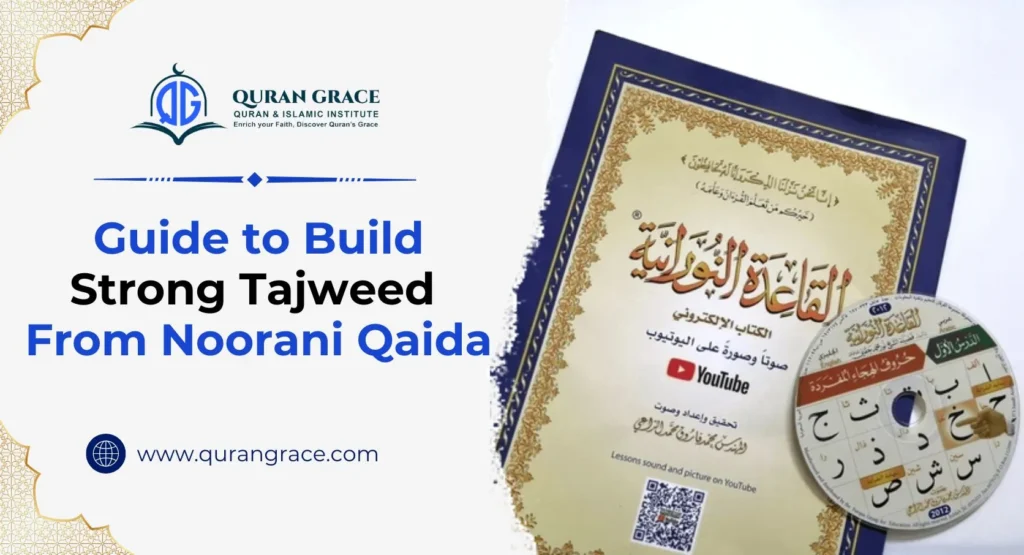The act of memorization itself is a noble pursuit. Imagine the depth and beauty you could unlock by simultaneously engaging with the tafsir (exegesis) of the verses you are committing to heart.
Integrating tafsir into your hifz course journey isn’t just an academic exercise; it’s a way to cultivate a richer understanding, a stronger emotional connection, and a more profound reflection on the meaning and message of the Quran. It transforms rote memorization into a dynamic and meaningful experience.
8 Tafsir Tips While Memorizing the Quran
Here are some detailed tips by the tutors of Quran Grace to help you effectively incorporate tafsir into your Quran memorization, making your journey even more impactful:
1. Start with a Reputable and Accessible Tafsir
The world of tafsir is vast and rich, with numerous scholars offering diverse interpretations and insights. For a hifdh student, especially when starting, it’s crucial to choose a tafsir that is:
- Accessible in language: Opt for a tafsir translated into your preferred language that is easy to understand without overly complex terminology.
- Concise yet comprehensive: You need enough detail to grasp the meaning without getting bogged down, which can hinder your memorization pace.
- Authored by a respected scholar: Ensure the tafsir adheres to mainstream Islamic understanding.
Recommendations:
- Tafsir Ibn Kathir (Abridged): Widely regarded as one of the most comprehensive and authoritative Sunni tafsirs. Look for abridged versions for easier consumption.
- Tafsir As-Sa’di: Known for its simple, clear language and focus on practical lessons and spiritual insights. Many find it very beneficial for connecting with the Quran’s message.
- “The Clear Quran” by Dr. Mustafa Khattab: A contemporary translation with concise footnotes that provide tafsir-like explanations, making it excellent for quick reference while memorizing.
- Local Scholar/Teacher Recommendations: Your local Quran teacher or Islamic scholar can often recommend tafsir resources tailored to your level and local context.
2. Prioritize Understanding Before Memorization
While it might seem counterintuitive to “slow down” your memorization process, truly understanding a verse before you attempt to memorize it will make the memorization stickier and more meaningful.
- Read the translation first: Before even listening to a reciter or repeating the Arabic, read the translation of the verses you plan to memorize that day.
- Consult the tafsir: After reading the translation, delve into the tafsir for those specific verses. Understand the context of revelation (asbab an-nuzul), key vocabulary, and the overarching message.
- Reflect: Take a moment to reflect on what you’ve learned. How does this verse apply to your life? What lessons can you draw from it?
Example: If you’re memorizing Surah Al-Fatihah, understanding the meaning of “Al-Hamdu Lillahi Rabbil ‘Alameen” not just as “All praise is due to Allah, Lord of the worlds,” but delving into what “Rabb” truly signifies – Sustainer, Cherisher, Provider, Master – will deepen your connection to this fundamental opening.
3. Integrate Tafsir into Your Daily Hifdh Routine
Consistency is key. Make tafsir a non-negotiable part of your daily Quran study:
- Dedicated Tafsir Time: Set aside a specific, short period each day (e.g., 10-15 minutes) before or after your memorization session purely for tafsir.
- Chunking: Don’t try to read an entire Juz’ of tafsir at once. Focus on the few verses you are currently memorizing or reviewing.
- Active Reading: Don’t just passively read. Highlight important points, jot down notes in a dedicated journal, or make mental connections.
4. Utilize Auditory and Visual Aids
Different people have various learning styles, so use a variety of methods and resources to improve your understanding.
- Audio Tafsir Series: Many scholars offer excellent audio lectures on tafsir (e.g., Nouman Ali Khan, Mufti Menk, Ustadh Muhammad Tim Humble). Listen to these during commutes, while doing chores, or as a supplement to your reading.
- Online Platforms: Websites like Bayyinah TV, Quranic Audio, and YouTube channels provide a wealth of tafsir content.
- Colored Mushaf with Word-for-Word Meanings: Some editions of the Quran have color-coded words with their individual meanings, which can be a great quick reference.
5. Focus on the Overall Message and Themes
While understanding individual words is important, don’t lose sight of the bigger picture.
- Surah Themes: Before memorizing a new Surah, try to understand its central themes, its place in the Quran, and its connection to the surrounding Surahs. This provides a mental framework for the verses within it.
- Ayat Connections: Notice how different verses within a passage connect and build upon each other. Tafsir often illuminates these connections.
- Practical Lessons: What are the actionable lessons you can take from these verses and apply in your daily life? This is where the true beauty of tafsir lies.
6. Keep a Tafsir Journal
A dedicated journal can be an invaluable tool for consolidating your understanding.
- Record Key Insights: Write down the main points, new vocabulary, and practical lessons from the tafsir of the verses you’re memorizing.
- Personal Reflections: Note down any personal reflections, questions, or prayers that arise from your study.
- Connect the Dots: As you progress, you’ll start seeing recurring themes and connections across different parts of the Quran. Jot these down.
- Visualize the message: Here’s an example of what your journal entry might look like for a few verses:
Surah: Al-Baqarah Ayat: 2-3
Translation: “This is the Book about which there is no doubt, a guidance for those conscious of Allah – Who believe in the unseen, establish prayer, and spend from what We have provided for them.”
Tafsir Notes:
- “No doubt”: Emphasizes the divine origin and perfect truthfulness of the Quran. Challenges skeptics.
- “Guidance for those conscious of Allah (Muttaqeen)”: Not just for anyone, but for those who seek guidance and have Taqwa (God-consciousness). Taqwa is the prerequisite for benefiting from the Quran.
- “Believe in the unseen”: Core of Iman. Includes Allah, angels, Jinn, destiny, Day of Judgment, Paradise, and Hell. Requires absolute trust in Allah’s word.
- “Establish prayer”: Not just perform prayer, but establish it – meaning regularly, with proper focus, and understanding its spiritual purpose. Connection with Allah.
- “Spend from what We have provided”: Encompasses Zakat, Sadaqah, supporting family, and charity. Acknowledges Allah as the true Provider. Teaches generosity and gratitude.
Personal Reflection: My belief in the unseen needs strengthening. How can I deepen my conviction in Allah’s unseen power and promises? My salah needs more khushu (devotion). How can I improve my focus during prayer?
7. Revisit Tafsir During Review
Don’t just read tafsir once and forget it. When you review your memorized portions, revisit their tafsir. This reinforces your understanding and helps solidify the verses in your mind with their meanings.
- Weekly Review: Dedicate a portion of your weekly hifdh review to quickly scan the tafsir notes for the Surahs you are reviewing.
- Deeper Dive: If a particular verse or passage still feels challenging or unclear, use your review time to do a deeper dive into its tafsir.
8. Be Patient and Consistent
Integrating tafsir into hifdh is a marathon, not a sprint.
- Start Small: Don’t overwhelm yourself. Begin with just a few verses a day, and gradually increase as you become comfortable.
- Prioritize: If you’re struggling with memorization, prioritize that first, but try to squeeze in at least a glance at the translation and a key tafsir point.
- Enjoy the Process: This journey is about nurturing your soul. Embrace the beauty of understanding Allah’s words.
Conclusion
Memorizing the Quran is a monumental achievement, but understanding its profound messages through tafsir elevates that achievement to an even higher spiritual plane. Learn Quran Tafseer online today with Quran Grace with a free evaluation class. You will learn how to decode the text through root words, contextual understanding, and mind mapping.








